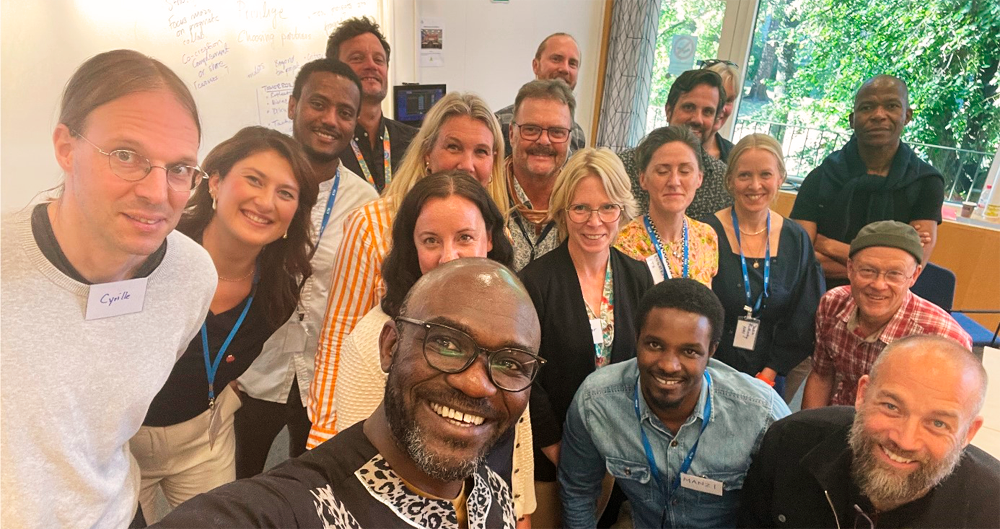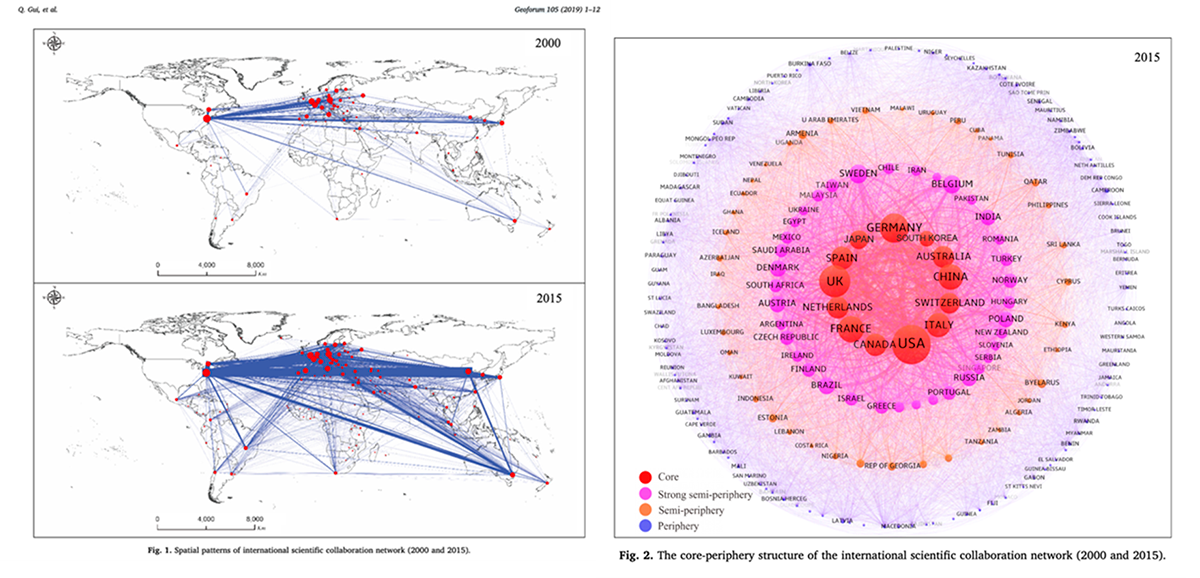Report from workshop on transformative partnerships

From 18 to 19 August 2025, KTH hosted the workshop “Transformative Partnerships in International Research Collaborations: A Nordic–African Perspective”, co-organised with HUMA – the Institute for Humanities in Africa at the University of Cape Town (UCT).
The workshop gathered around 30 participants from KTH, Sida, Uppsala University, the Nordic Africa Institute, and other partners. Representing KTH were colleagues from management, faculties, administration, and students, reflecting on the importance of advancing equitable and sustainable research collaborations.
Two days of exchange and reflection
The programme began on Monday, 18 August, with a joint lunch followed by an afternoon workshop. The following morning, Tuesday, 19 August, participants reconvened to reflect on the previous day’s discussions. The focus was on how both individuals and institutions can engage with and embed the principles and aspirations of the Africa Charter for Transformative Research Collaborations.
Conversations throughout the workshop revolved around the Charter’s call for more just, inclusive, and decolonial approaches to global research partnerships. Together, participants explored questions such as:
- How can we address and work against the multi-layered power imbalances that shape the generation of scientific knowledge and research production?
- Whose epistemologies are setting the agenda for knowledge production and the design of funding schemes, and how can space be created for multiple ways of knowing?
- How can Nordic and African institutions collaborate to rebalance research ecosystems and co-create knowledge on equal terms, moving beyond extractive models?
- How do we expand the scientific network beyond its narrow core? The Africa Charter’s concentric circle metaphor illustrates how global science often concentrates interactions among a few central actors, leaving many institutions and researchers at the periphery. A transformative approach calls for strengthening connections across and between these circles to ensure more inclusive, diverse, and equitable collaboration.
A collaborative Nordic–African initiative
The workshop builds on KTH’s growing engagement in Africa, where collaboration is increasingly framed as a space for mutual learning and co-creation. It also reflects the ambitions outlined by the work and commitments of the KTH Global Development Hub, a platform that emphasises the importance of strengthening KTH’s role as a platform for transformative partnerships with African universities. By bringing together researchers, funders, and sector networks, the event provided a space to identify obstacles to equitable partnerships and share strategies to overcome them.
For KTH, this dialogue is closely connected to its role as a global, scientifically actor in science diplomacy and sustainable development. Engaging with African partners through the framework of the Africa Charter invites reflection on how openness, responsibility, and innovation can reshape research and education practices.
Key insights from the discussions
The group discussions revealed both the challenges and the opportunities involved in rethinking international research collaborations. Participants highlighted that any change demands collective energy, and that transformative collaboration often emerges when existing practices some times are recognized as problematic.
Several reflections centered on the importance of broadening epistemologies within science. By allowing other forms of inquiries and knowledge-making, participants noted, new answers and perspectives can emerge that would otherwise remain hidden. This requires moving away from logics that reinforce extractive or one-sided practices, and instead working as a collective.
The Africa Charter for Transformative Research Collaborations was presented not only as a guiding framework but also as a living process. It offers the possibility of endorsement at both individual and institutional levels, while emphasising that genuine institutional culture change is required. Such change must encompass shifts in policy, practice, debate, and engagement across spaces and communities.
Discussions also addressed the distinction between a Community of Interest, which commits to championing and promoting the Charter’s principles, and a Community of Action, which takes concrete steps to translate those principles into practice. This dual approach underlines the Charter’s ambition to move beyond theory into implementation.
Participants noted that the Charter seeks to rebalance the global science and research ecosystem, where interactions are often concentrated among a few central actors. By creating more inclusive networks — involving institutions and researchers at the periphery as well as the core — the Charter challenges long-standing models of science that mirror global economic inequalities. In this way, advancing the Charter is not about replacing existing good practices, but about adding new practices that strengthen equity and mutual benefit.

Looking ahead
The rich discussions over the two days underscored the importance of moving beyond transactional collaborations towards transformative partnerships that are long-term, mutually beneficial, and globally relevant. To advance this ambition, the participants at the workshop identified four key streams of work for taking the Africa Charter forward:
- Policy engagement
- Developing good practices
- Further scholarly inquiry
- Capacity strengthening
The Charter is expected to publish a set of documents in November 2025, providing a concrete next step for those committed to advancing transformative partnerships. More information the Africa Charter (parc.bristol.ac.uk)
The organisers - Divine Fuh (UCT/HUMA), Henrik Ernstson (KTH/SEED), and Erika Svensson Rössner (KTH International Relations Office) - extend their warm thanks to all participants for their engaged and thoughtful contributions.
